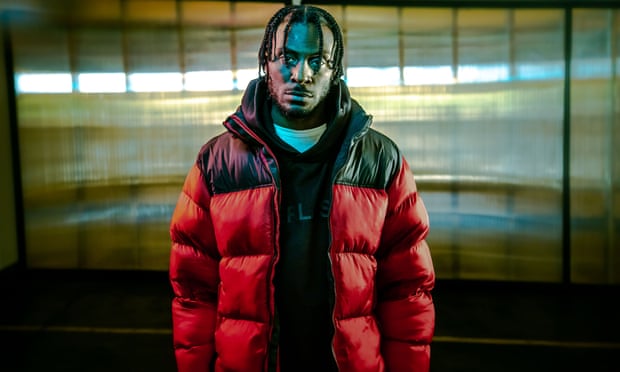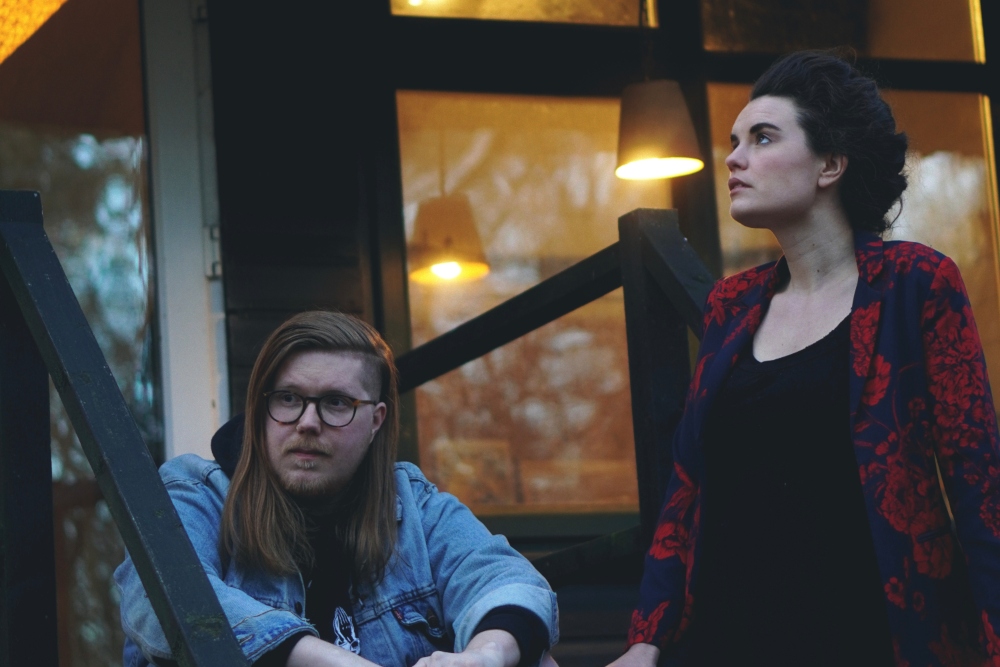Interview: Catching up with Jamila & The Other Heroes
Photo credit: Philipp Wenning
Join us as we proceed further down the steps of history and revisit some of our favourite artists. We first encountered Jamila & The Other Heroes as they were releasing their imaginative single, ‘Aliens In My Bed’. At the time, we sat down for one of our exclusive interviews, which you can catch here. The five-piece fellowship quickly marked themselves from the crowd as they focussed on championing the political and voicing protests against the unjust. Front-woman Jamila Al-Yousef was born the day the Berlin wall came down, engraining a lifelong passion to fight prejudices of migration and asylum seekers. The importance was further compounded by her father, a Palestinian medical doctor who came to Berlin as a refugee.
Most recently, Jamila Al-Yousef dealt with her own difficult border crossing situation as she attempted to travel through the Sinai peninsula of Egypt. Aware that the border crossing was not as difficult as some encounter, the situation still left her with a fire to express the injustices that many face on a regular basis. The band’s latest psychedelic funk single, ‘BORDER SYNDROME احلام بلا حدود’ was a creative outlet for these frustrations, while still highlighting the seriousness of the matter. The single follows the release of ‘YABA يابا’ last month, the first of the concept double singles.
Stream /Download: ‘BORDER SYNDROME احلام بلا حدود’
Join us as we explore the mind of Jamila and learn some of the best ways to prevent these difficulties many face in the exclusive interview below.
Tell us about your recent creative inspirations
Most recently, it has been feelings of powerlessness in regards to the pain other people feel that I cannot cure or also my own. Both our new songs are dedicated to my fatherland: Palestine, and all the joy and pain that comes with it. I wrote YABA يابا with the hopes to see my father’s fears fly out of his head and that he tells me more of the Palestine he left during the 6-Day-War in 1967. And I tell him about mine – my experiences full of joy and hope for a border-free Palestine that we will return to with my children one day.
Our current release, BORDER SYNDROME احلام بلا حدود was my attempt to deal with a discriminatory border experience I had last year. I had just came from a beautiful New Years gathering in Sinai with artists from the whole region and suddenly found myself in this painful border system. I was not allowed to cross the border like all my other friends, and was kept many hours for interrogation until there was no more chance to leave the place – no public transport and all borders back to Egypt or to Jordan were closed. I looked at the Red Sea and saw Egypt, Saudi Arabia and Jordan – knowing that also Syria and Lebanon are just a few hours car ride away – but also inaccessible. I was longing to be with my friends from all these places – physically so close, but due to the border system as far as stars. I thought of all the friends I have in these places and became very sad and angry about the region and people being torn apart based on political and economic interests. At the same time, I strongly felt my usually given privilege of being able to easily travel within Europe. I put all my feelings into the poem BORDER SYNDROME that later became our new song.
In this song, I also add lines of the Palestinian poet Mahmoud Darwish, who wrote the way to get home is more beautiful than home, but re-shaped the narrative of getting home by describing my home as the experience of travelling with friends to Palestine and the region as a road trip through diasporic zones.
What, do you think, should be some of the most urgent steps taken to make these crossings more humane?
People working at border crossings can also be kind and human, speak friendly with the interrogated people, provide them with food and water after more than 4h of waiting, allow them to move, have fresh air, use a bathroom etc. – but this does not change any of the bigger political picture and the power position they inherit.
For example, in my latest experience, I thought that one of the interrogators, a young woman, could have been a cool person that (if I would have met her in a Berlin club or bar) I could probably have had a nice encounter with. She had long curly hair like me and when she asked me about my work and I told her about my antiracism teachings. She asked me about the situation in Germany and I told her about some racism and antisemitism research. She was interested. For a moment, I felt we are not at the border and the course of my journey was not in her hands. As if we could be mutually exchanging our life stories in a private context, but we were not equal humans on eye-level doing that. Her government and employer is structurally oppressing Palestinians* that I accidentally was born to identify myself with. And of course, I would have never let her watch my private photos and check all my contacts on the phone in real life.
The point I’m trying to make is this: it’s not about the kindness of the executing powers like her, but about the system itself. If we want to make border crossings more humane we have to get active as globally united civil societies to put pressure on politicians to take responsibility for colonial continuations that still last till today and call them to change discriminatory border practices and allow access to everyone. I dream of a global citizen passport, same visa regulations worldwide for everyone – our borders should be made of mutual respect human to human instead of barbed wire fence.
*See human rights watch, amnesty international etc.
What is one thing that each town or city could do to welcome new people into their folds?
I love the concept of SANCTUARY or SOLIDARITY CITIES aiming at ensuring access to all essential services of society such as housing, health, education, social services, emergency services and access to cultural life without the fear of being detained or deported. Today, cities all over the world such as New York are one of 31 US cities that choose to counter federal and state immigration laws by creating safer spaces for asylum seekers in their cities. As a musician and anti-racism consultant for cultural institutions, I especially wish for all cultural houses such as theatres and club cultural venues to work on inclusive strategies to not only enable access for immigrants to their programming but also share power and resources with them to represent themselves and share their individual, diverse perspectives and knowledge. We have to be aware of our privileges and power and we should support polyphonic voices!
Let’s switch tracks a bit. Why did you decide to pursue the arts?
It’s liberating and healing. The number one connector to yourself, other beings and outer space. Music was always there for me, in any kind of mood – be it joy, fear, sadness or anger, I could listen to soothing songs or put my emotions into music writing in order to digest them and then later connect through my music to other people who had similar experiences.
I am currently working with dancers on creating a music video for BORDER SYNDROME احلام بلا حدود. One of them – a person I never met – wrote me after listening to the song: “I really love this project and feel so connected. The topic of home was especially present in my life the last couple of months. I also travelled to Russia and as you say `my way home is my home`. In your lyrics I see myself and I love the way you sing it, that it’s strong rather than just sad.”
Tell us about the inspiration behind your unique psychedelic rock sound
Our band sound resembles a transcultural, outernational approach – we see each other as a band from “manywhere”. Each musician in this band is adding their individual musical influences and interests, regardless of whether they come from original music cultures of regions we grew up in like partially in the Middle East or music languages we got to know on our journeys and in our music education. We share the passion of jamming and mutually learning from the world with other musicians from manywhere. With this approach, we want to overcome politically given borders and create a border-free musical space of sounds, rhythms, emotions and melodies. As unlimited and free as psychedelic experiences may be, we want our music to fly.
Update us on your latest collaborations – who are you enjoying working with?
We love collaborating. In the past, we have collaborated with wonderful beings like Syrian trumpeter Milad Khawam, Heart Chor Berlin around Brazilian singer Danilo Timm and US violinist Roland Satterwhite. The Palestinian writer Rasha Hilwi always supported me with her magic language skills in my lyrics. This time, we collaborate with a group of dancers around Syrian choreographer Medhat Aldaabal.
Take us through the recording process of your most recent releases
Our last studio experience at BEWAKE in the heart of Berlin Kreuzberg was magnificent. The studio is so big and beautiful, full of old treasures and with a big kitchen bar area, where we could hang out and plan the next steps. Lucky, who recorded and mixed our new double Single YABA يابا and BORDER SYNDROME احلام بلا حدود was always in a joyful, open mood – we had loads of fun. For instance one evening Pier, our drummer, grabbed all percussion instruments he could find in the studio and played them by holding them with his whole body, looking like a peacock. It was also the first time we recorded in a studio with big daylight windows facing the old loft courts around. While recording, some friends came by to support us with their clear ears, or filming the session or bringing us WAYSA, a caffeine drink that aims at saving the rainforest.
Breakdown the news for us: what can we expect from you this year?
Full power on devoting ourselves to share our love, energy and spirit of togetherness, freedom and healing with the world through our music. We plan more recording sessions later this year and plan to tour in the Middle East in Fall – hopefully, the pandemic allows this. After our album release last year we had to cancel all shows in Europe, Egypt, VAE, Lebanon and Canada. We really hope to have the chance to travel again soon and connect with beautiful beings worldwide.
Follow Jamila & The Other Heroes:
Website – Facebook – Twitter – Soundcloud – Youtube – Instagram – Spotify
By Sarah Britton




